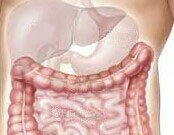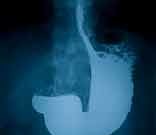Tag: Gastrointestinal Problems
Duodenoscopes Infected With CRE at UCLA Med Center
Endoscopes blamed for spread of potentially deadly bacteria
Certain Macrolides Linked With Higher Risk of Pyloric Stenosis
Risk, though small, appears highest when medications given in first six weeks
Review: Some Nonpharmacologic Tx Effective in Peds GI Disorders
Improvements with hypnotherapy, cognitive behavioral therapy, probiotics in AP-FGIDs
NSAIDs Up Odds of Anastomotic Leak Post-Colorectal Resection
Findings show increased odds for patients undergoing nonelective colorectal resection
Age at Gluten Introduction Not Linked to Risk of Celiac Disease
Risk of tissue transglutaminase autoantibodies, celiac disease up in Swedish versus U.S. children
Electronic Alert Cuts Proportion of IV Proton Pump Inhibitors
Significant reduction in proton pump inhibitor use, associated institutional costs
Gastrointestinal Cancers Symposium, Jan. 15-17
The 12th Annual Gastrointestinal Cancers Symposium The American Society of Clinical Oncology's 12th annual Gastrointestinal Cancers Symposium was held from Jan. 15 to...
Unhealthy Dietary Behaviors Linked to Functional Dyspepsia
Risk factors for refractory FD include skipping meals, eating extra meals, preference for sweet foods












